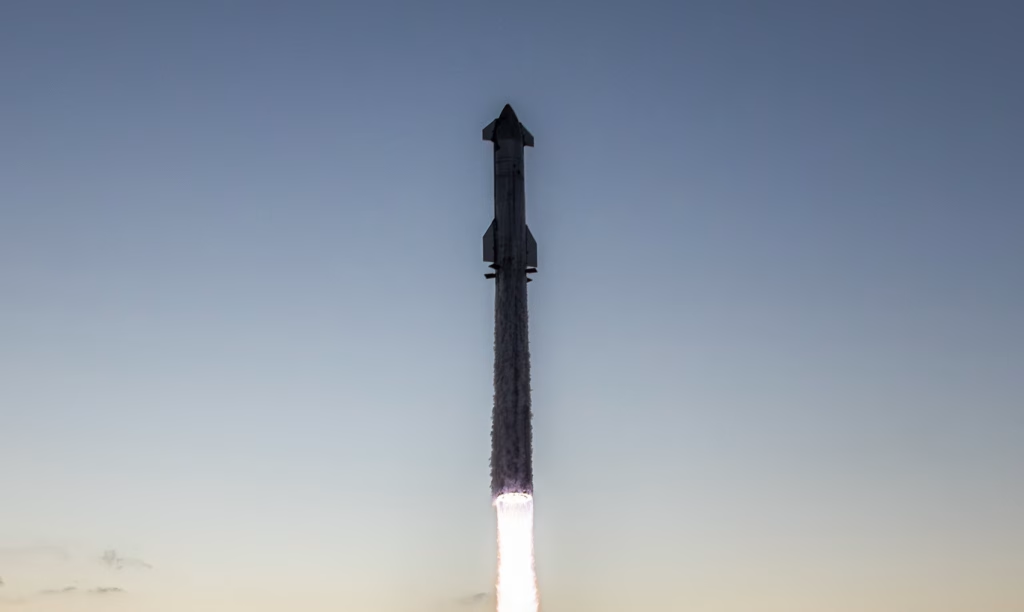SpaceX successfully demonstrated its latest reusable rocket technology in October. Starship will carry the next generation of Starlink satellites.
Starlink Just Had a Big Win Against a Top Competitor

Image by SpaceX
After a successful test launch and a significant delay in the competition, SpaceX’s Starlink just pulled further ahead as the top satellite internet provider. SpaceX saw a major leap in its satellite deployment capabilities with the completed test of its reusable rocket system, Starship. Meanwhile, Amazon’s Project Kuiper's first satellite launch is delayed to 2025, meaning it won’t see wide commercial availability for quite some time.
Due to launch schedule shakeups with the United Launch Alliance (ULA), Amazon will be unable to launch its first Kuiper this year. The company initially planned to launch satellites and possibly beta-test them in late 2024, but this delay has pushed back its entire timetable.
Kuiper’s delay also comes in the face of a deadline set by the Federal Communications Commission (FCC) that requires Amazon to launch at least half its planned 3,200 satellite constellation by July 2026 in order to retain its license to operate.
Starlink vs Project Kuiper
While Starlink isn’t the only satellite internet provider available, it’s the only one that uses low-earth orbit (LEO) satellite technology, which reduces high latency, an inherent problem with other providers. Amazon’s Project Kuiper is said to use similar technology but requires fewer satellites that provide higher speeds, positioning it as the likely challenger to Starlink’s dominance in the field.
However, Starlink is five years ahead of Kuiper as it continues building out its constellation for better reliability and download speeds. It will make more advances thanks to SpaceX’s Starship, which had a successful test in October that demonstrated a successful reentry of its reusable rocket system. SpaceX’s VP of Starlink Engineering, Michael Nicolls, remarked on X that the next generation of Starlink satellites will be launched via Starship. These new satellites will reportedly deliver gigabit speeds—a steep improvement over the current 200 to 300 Mbps speeds Starlink currently serves.
If you’re hesitating to get Starlink because a potential alternative could arrive soon, you may want to jump on it now because you’ll be waiting much longer for Project Kuiper. Starlink kits are readily available to purchase from the website for several use cases. Explore the different options below.